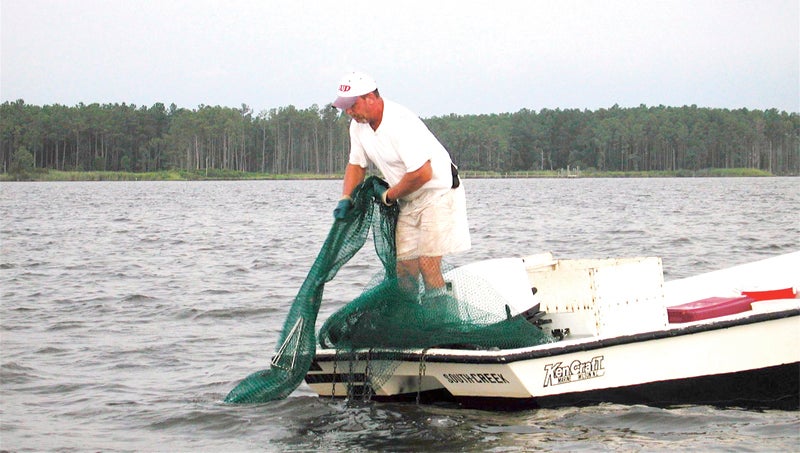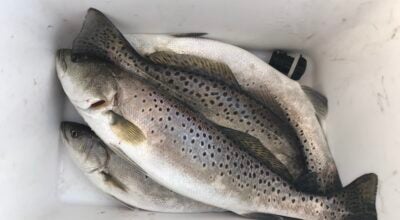Shrimping petition approved, long process ahead
Published 7:43 pm Monday, February 20, 2017

- TRAWLING: A recreational shrimper takes on small-scale trawling, pulling in his net to see if his trip led to a good tow. (Fred Bonner)
A recent petition leading to further shrimp-trawl regulations stands.
Late last week, the North Carolina Marine Fisheries Commission voted to approve a petition for rulemaking, which allows officials to draft new, stricter rules for shrimp trawling.
The N.C. Wildlife Federation and the Southern Environmental Law Center filed the petition in November 2016, requesting a reduction in the number of days shrimpers can trawl, as well as designating all coastal waters not already designated as special secondary nursery areas and detailing what gear to use.
“The commission’s vote was a disappointment but not unexpected. Now the rulemaking cycle is officially under way and that alone could take 18 to 24 months, starting with an in-depth fiscal analysis,” NC Catch President Heidi Smith wrote in an email. NC Catch seeks to promote and educate the public about the state’s seafood economy. “Because many millions of dollars and hundreds of jobs are at stake, the process will also be subject to the N.C. Regulatory Reform Act, which has its own procedures.”
After the rules draft is prepared, officials must then allow for public comment before adopting the rules and passing it along to the N.C. Rules Review Commission, according to a press release. If the Review Commission receives 10 or more objection letters, then the document moves to the state legislature, the release states.
“If the legislature did let it stand, the final step would be to amend each of the affected fisheries management plans because the MFC can’t implement rules that are not in agreement with their own FMPs,” Smith explained.
“Our job as a division is to balance that value and function of different habitats with the public’s use of the waters, and one way we balance that value and function of the habitat is through the design of different types of nursery areas,” said Trish Murphy, of the Marine Fisheries Commission. “We look at the amount and size of shrimp and evaluate the amount of bycatch and bycatch species to determine openings.”
Thousands of fishermen and residents have opposed the stricter regulations because of the financial effects it may have on their individual livelihoods and/or the local economies.
Murphy said if there is an economic impact on all stakeholders of greater than $1 million in a 12-month period, with costs and benefits combined, the Commission will have to consider at least two alternatives to the rules.
Examples of costs are costs of new gear purchases and modifications to vessels, and an example of a benefit is increased biological productivity, she said.
“These rules as proposed may have a substantial economic impact on the stakeholders affected,” Murphy said.
Smith said the upcoming process is a long one, and NC Catch will continue pushing for the best outcome.
“This is a marathon, not a sprint, and we hope consumers remain engaged,” Smith said.





